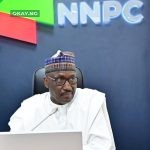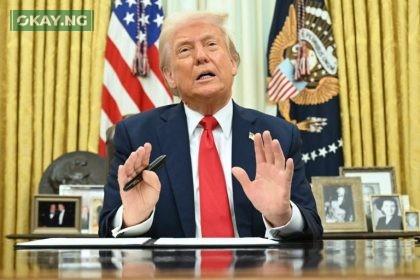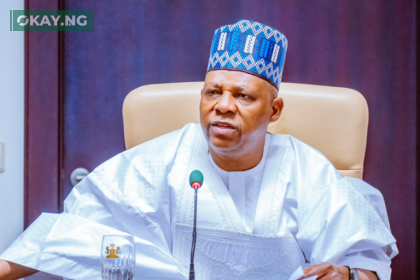The Monetary Policy Committee (MPC) of the Central Bank of Nigeria (CBN) has increased the Monetary Policy Rate (MPR), which serves as the benchmark for interest rates in the country, to 27.50 percent from 27.25 percent.
The decision was announced by Olayemi Cardoso, the CBN Governor, during a press briefing on Tuesday following the committee’s 298th meeting in Abuja.
Cardoso said the committee raised the MPR by 25 basis points to curb rising price pressures and stabilize the exchange rate. The MPC retained the asymmetric corridor at +500 and -100 basis points around the MPR, the cash reserve ratio (CRR) at 50 percent, and the liquidity ratio at 30 percent.
The CBN governor explained that the decision to adjust the MPR was influenced by the persistence of price pressures, which are adversely impacting income levels and the welfare of citizens.
“The committee was particularly concerned that all three measures also inched up on a month-on-month basis, suggesting the persistence of price pressures with attendant adverse impact on income and welfare of citizens,” Cardoso said.
The MPC acknowledged the role of food prices and rising energy costs in driving inflation. It commended federal government efforts to improve security, particularly in the northeast, which it said could boost food production. However, the committee noted that the recent increase in the price of premium motor spirit (PMS) has significantly impacted production and distribution costs.
Cardoso expressed optimism that the full deregulation of the petroleum downstream sector would stabilize price levels in the short to medium term. He emphasized the need for stronger collaboration between monetary and fiscal authorities to achieve price stability and sustainable growth.
“The committee also noted the need to remain focused on addressing price developments while anchoring inflation expectations appropriately,” he said.
Cardoso highlighted improvements in Nigeria’s external sector, including an increase in the current account surplus, enhanced remittances, and capital inflows, which have positively affected the country’s external reserves.
The MPC concluded that key policy measures by both monetary and fiscal authorities are yielding positive outcomes.












